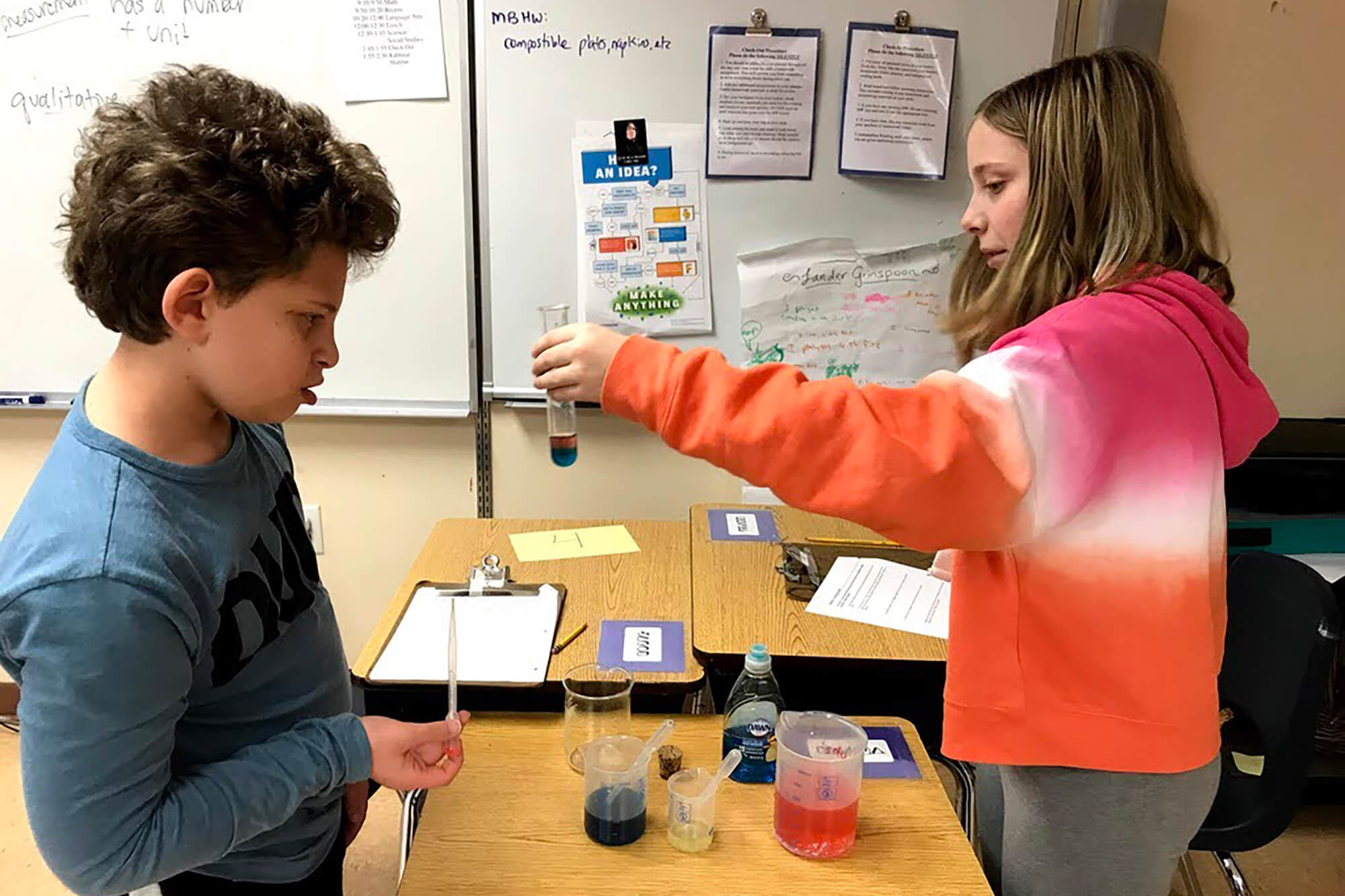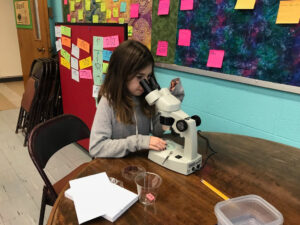
Our science program includes learning about the lives and work of professional scientists, both past and present. Classes combine hands-on experiences with clearly presented content using printed texts, web-based materials, videos, guest experts, and field trips. In typical science classes, you might see children raising earthworms, building simple machines, or using microscopes.

Beginning in the Gan, students watch the metamorphosis of caterpillars into Monarch butterflies. They examine and study mushrooms, learn physics through experimenting with balls and ramps, explore the five senses, and study the life cycles of the moon, trees, bulbs, fungus. They spend a great deal of time using their powers of observation, learning to be scientists and then translating their observations into drawings, stories and other works of art. The Science Curriculum at LGA spirals. Certain topics are revisited in depth as the children progress into the older grades.
First grade students study states of matter focusing on solids, liquids and gases. They are introduced to the five main body systems: circulatory, muscular, skeletal, nervous and respirator. Habitats are researched and studied along with the solar system and electricity.
Second grade students delve into life cycles and study the food pyramid and nutrition. The study of the weather including the seasons has included a trip to a local TV station to meet with a meteorologist and making rain gauges. Students are also introduced to simple machines.
Third grade students spend time exploring the three body systems; skeletal, nervous, and muscular as well as learning about vision and hearing; sound and light and a study of the planets.
Fourth graders study use hands-on experiments to learn about electricity and electromagnetism. The respiratory and circulatory systems are studied in depth along with matter, atoms, elements, molecules and chemistry experiments.
Fifth graders are introduced to the endocrine and reproductive systems. The study cells and classifications of living things, plants and plants reproductive systems.
Sixth graders learn about plate tectonics, oceans, electricity, heat transfer, density and the reproductive system as it relates to puberty.

Copyright © 2025 Lander-Grinspoon Academy. All rights reserved. Website designed by Addicott Web.